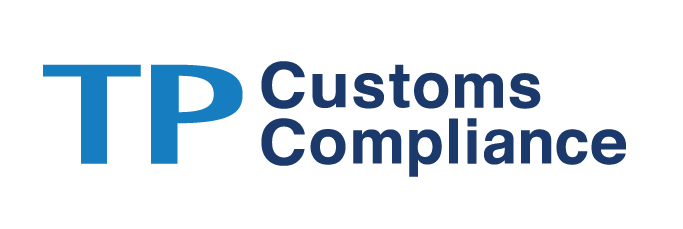In December 2020, Mexico’s Federal Government announced the purchase of COVID-19 vaccines for all the national population and that it will initiate its National Vaccination Policy (the “Vaccination Policy”), which will be implemented in various stages, considering the degree of vulnerability, starting in December 2020, and concluding in March 2022. No-one will be obligated to be vaccinated.
On January 25, 2021, the Federal Government published an “Executive Order which purpose is to establish, as an extraordinary action on general health matters, that the governments of the States of Mexico, in their capacity of sanitary authorities, as well as individuals and companies of the social and private sections, that form part of the National Health System, will assist with the Mexican Ministry of Health in the implementation of the National Policy for vaccination against the SARS-CoV-2 virus for the prevention of COVID-19 in Mexico” (the “Executive Order”).
From our review of the draft of the Executive Order, we interpret that companies that decide to acquire the vaccine against the COVID-19 virus for its application to their employees at their work establishments must acquire the vaccine from individuals and entities of the social and private sectors that form part of the National Health System.
In addition, the legal implications for the purchase and application of the vaccines must be considered.
I. Executive Order
The Executive Order establishes that the States of Mexico in their capacity as sanitary authorities, as well as the individuals and entities of the social and private sectors that form part of the National Health System, must perform the following before the Mexican Ministry of Health:
- Submit to the Mexican Ministry of Health the agreements executed with the pharmaceutical companies authorized in Mexico to acquire the vaccine.
- Inform the Mexican Ministry of Health of the number of vaccines they will apply.
- Respect the vaccination calendar and the priority groups established in the Vaccination Policy.
- Implement preventive and sanitary control measures.
- Guarantee, within their scope of competence, the traceability of the vaccination process and inform the Mexican Ministry of Health of the same.
II. Legal aspects
Due to the great demand for the vaccine, we consider that there is a high risk of being offered vaccines by entities or individuals that are not authorized to distribute the vaccine or of vaccines that do not comply with the required quality and health standards. Therefore, it is of utmost importance that the vaccine is acquired from an authorized distributor who can evidence that it has access to the vaccine as well as the permits and licenses required for the importation and commercialization of the vaccine in Mexico.
In addition to the foregoing, it is important to implement a plan for the application of the vaccine as well as for the mitigation of any secondary effects of the vaccine. Companies must be careful in their internal vaccination strategies to reduce any potential risks as well as labor and civil law contingencies.
Derived from information issued by the World Health Organization, it is known that in many countries there continues to be a certain degree of mistrust with respect to the effects of the vaccine and Mexico is no exception to said mistrust. Therefore, companies that pretend to apply the vaccine to their employees must prepare to deal with situations of this nature.
III. Labor Aspects.
The Federal Labor Law does not expressly require an employee to get a vaccine against a contagious disease. Neither provides that an employee’s rejection to be vaccinated constitutes a cause that justifies the termination of a labor relationship.
Aside from the fact that companies can argument that because of sanitary measures for prevention, a vaccine is obligatory for its employees because it aims to protect the health of all its employees, their work stability, and the work source, in principle, is advisable that companies first inform their employees about the vaccine and obtain their prior consent prior to applying the vaccine at the place of work.
Additionally, it must be considered that the application of a vaccine at the place of work could implicate a civil liability for the company in the event the effects of the vaccine are harmful to the health of the employee, therefore, in the event an employee decides to get the vaccine, said employee must release the company from any liability derived therefrom.
Key aspects for companies:
- Promptly review the process for the acquisition of the vaccine and the background of its supplier as well as documenting the acquisition and application of the vaccine by means of an agreement in writing, in accordance with the guidelines established by the Federal Government.
- Analyze the strategy for the application of the vaccine at the place of work as well as the implications of performing voluntary and/or compulsory processes for vaccination.
- Obtain the consent of the employees that decide to get the vaccine, as well as a release of liability in favor of the company, in writing.
- Verify the sanitary measures for the application of the vaccine in the place of work.
- Analyze the hiring procedures to avoid discriminatory practices related to the exclusion of job candidates because they are not vaccinated against COVID-19.
For any questions or comments, please do not hesitate to contact us.
Alejandro Pedrín | apedrin@tplegal.net
Héctor Torres-López | htorres@tplegal.net
Leobardo Tenorio-Malof | ltenorio@tplegal.net
Mauricio Tortolero | mtortolero@tplegal.net
Daniel Gancz-Kahan | dgancz@tplegal.net
Alejandro Ceballos | aceballos@tplegal.net
Elio Sánchez | ecsanchez@tplegal.net
Iván Curiel-Villaseñor | icuriel@tplegal.net
Raúl Escamilla-Sanromán | rsanroman@tplegal.net



